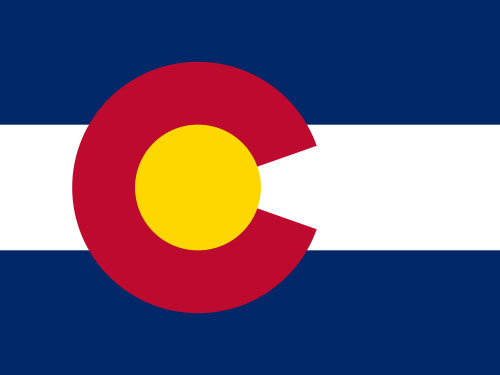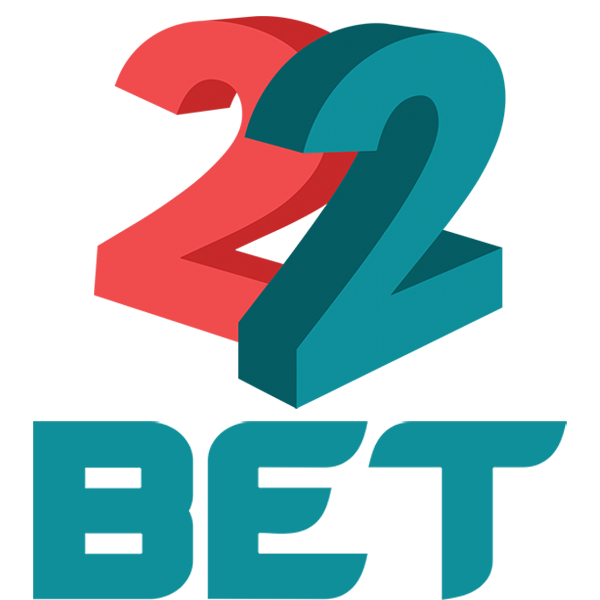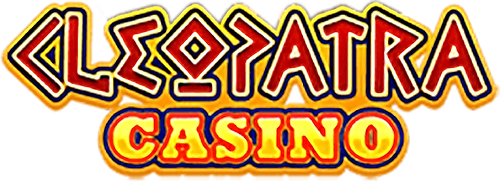-
Casinos for you

Colorado
States like Colorado seem to be more liberal on the subject, offering land-based casino gaming, horseracing, sports betting, and daily fantasy sports to their citizens.Profile
Land Based Gambling Allowed in Casino, Sports Betting, Poker, Bingo, Lottery, Horse RacingOnline Gambling Allowed in DFSMin Age 18-21Number of Land Based Casinos 43Number of Poker Rooms 9Number of Indian Casinos 2Popular Land Based Casinos Black Hawk Central City Cripple Creek Ute Mountain Sky UtePari-Mutuel YesSmoking Ban YesEstimated Tax Revenue from Gambling $230MEstimated Gambling Revenue $1.3BLand Based Gambling
Casino
Regulated Since: 1991
Gambling Age: 21
Sports Betting
Regulated Since: 2016
Gambling Age: 21
Poker
Regulated Since: 1822
Gambling Age: 21
Bingo
Regulated Since: 1982
Gambling Age: 18
Lottery
Regulated Since: 1982
Gambling Age: 18
Horse Racing
Regulated Since: 1950
Gambling Age: 21
Dog Racing
Online Gambling
Online Casino
Online Sports Betting
Online Poker
Online Bingo
eSports Betting
DFS
Regulated Since: 0
Gambling Age: 0
Overview
States like Colorado seem to be more liberal on the subject, offering land-based casino gaming, horseracing, sports betting, and daily fantasy sports to their citizens.The state of Colorado observes a rather liberal view when it comes to gambling within the borders of the region. The tolerance for gambling remains mainly within the land-based gaming segment, as most forms of online gambling are outlawed.
Gambling goes back to the ‘Old West’ when mining prospectors would line the taverns and saloons to play games of skill like poker and other card titles. This was before any set gambling laws were set in place in the state. The earliest casino opened in 1822, known as ‘Brown’s Saloon’, but this sort of practice was ended by political puritans, sending the gambling movement underground.
Gambling was finally legalized under regulation in the 1950s by the Racing Commission. This allowed folks to bet on horseracing at the track. Only 20 years later, were taverns allowed to offer simulcast betting off-track.Greyhound racing was also a prominent betting sport allowed within the borders of the state, however, this form of racing ended when the last dog track closed shop after the finale was run at Mile High Racetrack on 28 June 2008. It seems that Greyhound race-betting suffered in the light of land-based casino gambling, which is now readily available in several locations.
The year 1982 saw the state introduce a lottery, which began its operations fully in 1983, only. This form of gambling was well accepted by citizens and is still in operation today, servicing anyone over the age of 18 years old with bosh instant type games (scratch cards) and lotto gaming with giant jackpots.
1991 saw an increase in the tolerance for betting within the state through the legalization and regulation of brick and mortar casino sites. The main motive behind legalizing this form of gambling was to boost the state’s ailing economy. Colorado permitted casinos in three primary mountain cities. These included Black Hawk, Central City, and Cripple Creek. Today, these remain the three sole casino sites on state land. The Indian Gaming Regulatory Act also made way for Ute tribes to open betting operations on tribal lands. These tribal casinos are regulated under the same laws as in-state operations, though you can smoke cigarettes at these establishments, unlike at regular Colorado casinos. All these establishments offer prominent casino games, such as slots, video poker, blackjack, poker, craps, roulette, and more.
The latest show of liberality has been seen in 2020 with the legalization of sports betting within the state, allowing licensed operators to offer betting on most prominent sport types.
Social Gambling is also possible in Colorado, where various forms of bingo and raffles can be hosted with restrictions in place for those who conduct them and how they are conducted. Fortunately, Fantasy Sports like FanDuel and DraftKings operate within the confines of the state without any problems either. These games are commonly accepted as games of skill, rather than games of chance. For this reason, there has been no opposition on offering these services to Coloradans, yet.
Like gambling around the world, it is a popularly sought out pass-time in Colorado and generates a revenue of around $1,100,000,000 per year, earning the state around $232,000,000 in taxes per annum. This is likely to climb with the latest introduction of online sports betting services.
Regulation
The laws and legislation of the state cover most types of betting. Gambling on horseracing, greyhound races, Lottery, Social Gaming, Casino Gaming, Sports Betting, and Online Gambling all have a unique governing framework:
• Horseracing: Betting on horseracing is only permitted when funds are placed into a pari-mutuel pool by bookmakers (pari-mutuel betting). Off-track betting is allowed at various licensed racing sites, taverns, and totes. To bet on the horses, gamblers in Colorado must be 21 years of age or older.
• Greyhounds Racing: Greyhound racing was officially outlawed within the state of Colorado, though off-track betting is still allowed at various licensed off-site locations. All the races bet on are undertaken in other states in the USA where Greyhound gambling is legal. Gamblers must still be over 21 years of age to bet on dog races.
• Lottery and Instant Games: Lottery games are purely state-run and regulated. The offerings included in this segment and under this regulation are certain instant game types, which include scratch cards. The state is more lenient on the age of gamblers in this segment, allowing players of 18 years old and more to participate in the draws.
• Social Gaming: Social games like Bingo and Raffles can be run within the state if it is done by registered Charities and non-profit organizations. All funds for these practices must all go towards funding these organizations alone, and no private benefactors may benefit commercially in any way from this income. As seen with the introduction of state lotteries, the government of Colorado is in support of gambling for the sake of goodwill and relief. Like with Lottery gaming, all participants must be 18 years or older.
• Casino Gaming: Casino gambling, including games like slots, video poker, card poker, blackjack, craps, and roulette, is legal, as long as the casino is licensed and situated in one of three towns, namely Black Hawk, Central City, or Cripple Creek. The only exception to this rule is the permission given to Ute Tribes to host casinos on reservation land under tight regulation.
Casinos are permitted to open 24 hours (previously 18 hours) a day for gamblers who are strictly 21 years and over, however, no game may exceed the bet limit of $100 (originally $5), set by legislation. The casino business is lucrative for operator and state, as each casino must pay 20% in taxes on earnings, each year.
• Sports Betting: As off May 2020, sports betting is now legal in Colorado, but only by licensed operators within the towns of Black Hawk, Central City, or Cripple Creek. Proposition DD was passed with a vote of the people, making Colorado one of many states dismissing federal laws that once made sports betting illegal. All licenses for this offering are held by licensed casinos and not by independent sportsbook operators.
• Online Gambling: The only form of online gambling that is legal in Colorado is off-site betting on horseraces and greyhounds. These forms of betting must be done at regulated providers and not merely undertaken on a personal computer.
Licensing
Licensing of gambling practices in Colorado can be done through the Colorado Department of Revenue and will only be granted under strict circumstances. There are 6 types of licenses offered in-state. These include:
• Manufacturer/Distributor License: Companies that manufacture or serve as a distributor for approved slot machines and their components.
• Retailer License: Persons permitting or conducting limited gaming on their premises.
• Operator License: Persons permitting slot machines on their premises or persons, such as slot routers, who place and operate slot machines on the premises of a retailer.
• Key Employee License: Persons who have the responsibility of making management or policy decisions in a gaming establishment.
• Support Employee License: Staff members, such as dealers, croupiers, cashiers, or anyone employed in the field of limited gambling.
• Associated Equipment Supplier: Persons who import, manufacture, or distribute associated equipment in Colorado, or otherwise act as an associated equipment supplier.The vetting process is stringent for casino license operations, including background checks of all staff members, ID verification, financial backing checks, criminal checks, and more. None of this licensing is cheap either, with costs of up to $8,000 per type, with added background deposit payments payable in some instances.
It is not only the betting operator that must acquire a license to operate, but each employee that is linked to the management or hosting of gambling services or money payouts must do so as well. All staff must undergo ID verification and submit to a background check for a fee of $110 each. Usually, staff will not qualify for a license if there is a criminal record in their history, but immediate disqualifiers are convictions of embezzlement, theft, fraud, or perjury within the last 10 years. Older convictions than these, or convictions of other crimes will be evaluated on a one-on-one basis for assessment based on behaviour and rehabilitation, etc.
The strict licensing procedures are put in place to protect gamers at casinos. When dealing with money to the degree that one does in this industry, one must ensure that the most ethical people are involved behind the scenes. Casinos with licenses are therefore likely to provide a safe and secure gambling environment for all.
Casinos and Gambling Facilities in Colorado Gambling?
FAQ
What forms of Online gambling are Legal in Colorado?You can only bet on sports, horses, and Greyhound races online. Online casino games, like Slots, Blackjack, Poker, Roulette, and others are outlawed in Colorado.What is the legal age of gambling in CO?To partake in social gaming (bingo and raffles) or to play the Lotto in Colorado, you need to be 18 years or older, but for all Horserace, Greyhound, Sports Betting, and Casino Betting you will need to be 21 years or older.Must I pay tax on Sports Betting winnings in Colorado?Yes, you will have to pay 24% tax on a federal level and 4% to the state.What percentage are Operators paying on Sports betting taxes?10% of a sports betting operator’s revenues are spent on taxes and 20% on casino revenues.Is Off-Track betting legal in Colorado?Yes, there are 12 off-track betting sites around the state.What sort of games can you play at a Colorado land-based casino?You can enjoy slots, roulette, craps, blackjack, poker, and more.Are Daily Fantasy Sports Legal in Colorado?Yes, both FanDuel and DraftKings operate in the state.Can I play the Lottery in CO?Yes, Colorado has its own state lottery.Can I smoke while playing at a Colorado Casino?You can smoke while playing at Tribal casinos, but not at regular Colorado casinos.Can I bet on Horseracing in Colorado?Yes, you can bet both at the racetrack, or via several off-track sites throughout the state.
-
CASINOS
- Popular
- Specialty
- Features
- Casinos By
-
BONUSES
- Popular
- By Type
-
GAMES
-
Slots
- Popular
- By Software
- Variations
- Features
-
Blackjack
- Popular
- Variations
- Features
-
Roulette
- Popular
- Variations
- Features
-
Video Poker
- Popular
- Variations
- Features
-
Craps
- Popular
- Features
-
Baccarat
- Popular
- Features
-
Poker
- Popular
- Variation
- Features
-
More Games
- Keno
- Bingo
- Fixed Odds
- Other Games
-
JACKPOTS
- Popular
- By Game
- By Software
-
COMMUNITY



.png.0f651d9e8ab97819d8e6bcc89d162b26.png)






